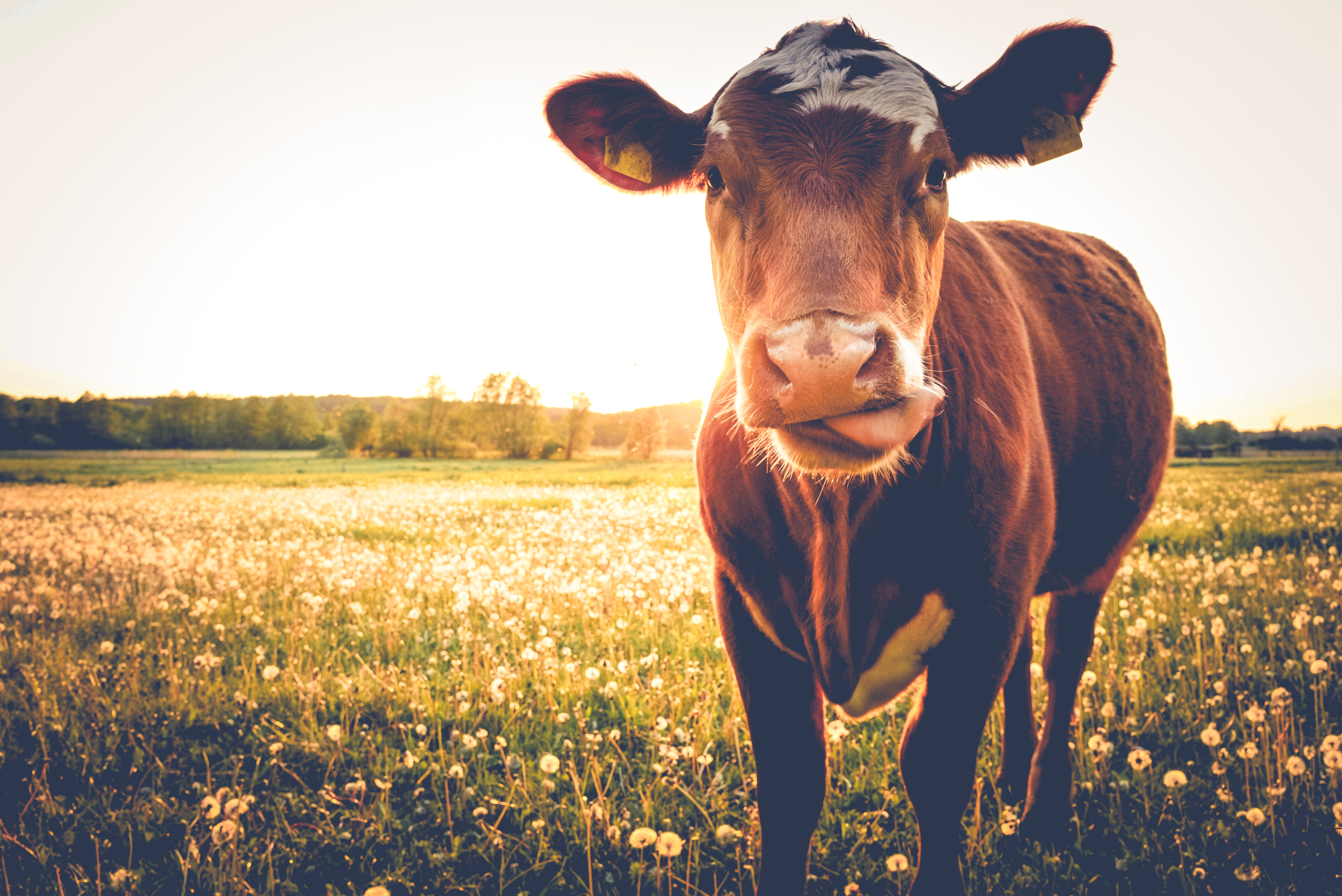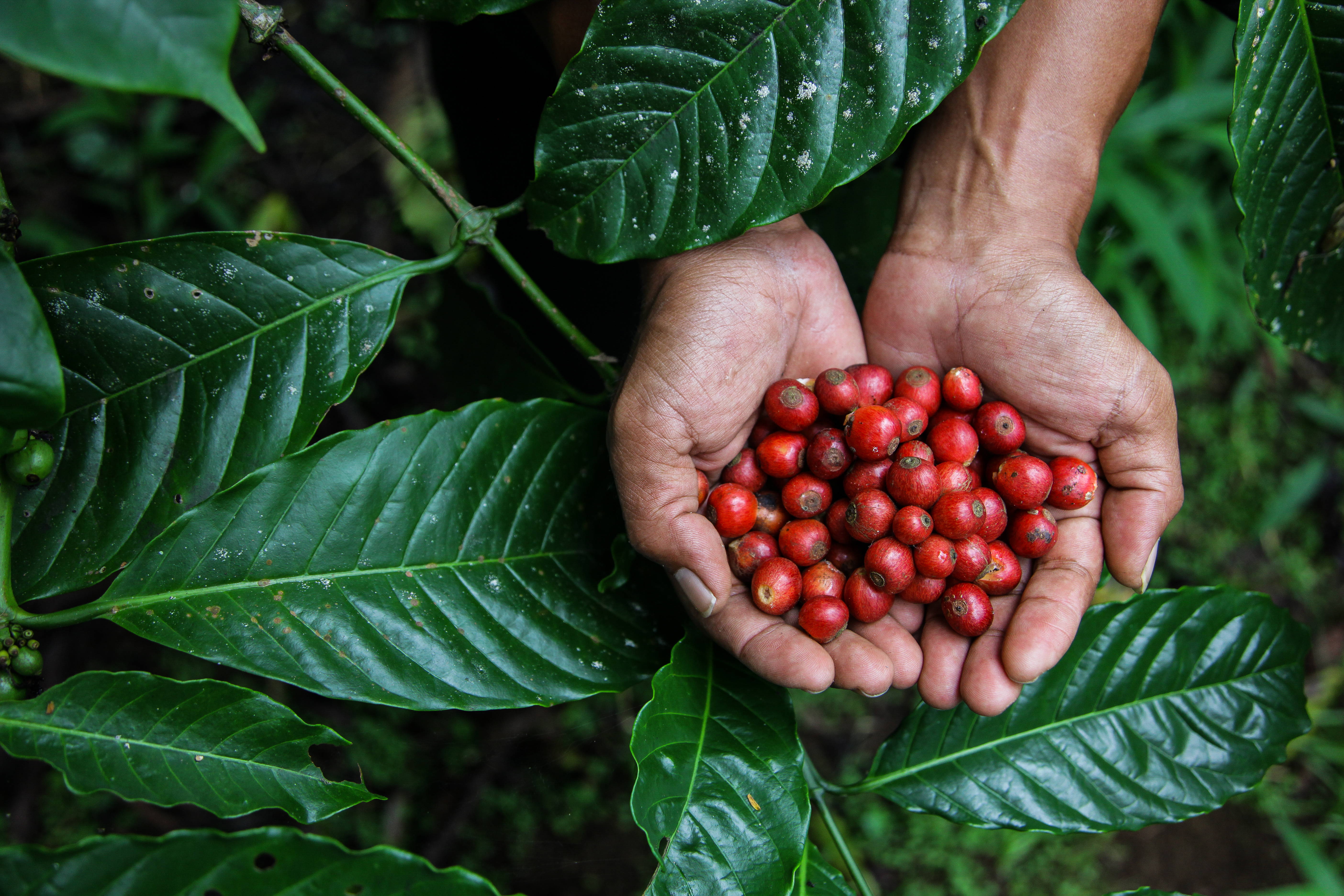
Super hurricanes pummeling coastal regions and wildfires burning out west. Devastated olive crops and ever-shrinking supplies of cocoa. The hottest temperatures in recorded history. Mussels cooking in their shells because it’s so hot. This is climate change, and it’s happening now, manifesting in intense weather patterns and negative changes to the food chain. And it’s happening regardless of whether or not we believe in it — and whether or not we know what to expect.
We do know what to expect, of course, thanks to a network of scientists and researchers who study climate change and its outsized impact on practically every facet of life. It’s how we know that U.S. meat and dairy producers are some of the biggest contributors to climate change. It’s how we know that the 57 percent drop in Italy’s olive production — which will have devastating consequences for Italy’s economy and the world olive oil supply — is due to climate change. It’s how we know our future might be free of chocolate and coffee, that the food supply chain could break down irreparably, leading to the malnutrition and even starvation of millions of people.
The Trump administration, meanwhile, loathes this information and wants to limit our access to it — according to a bombshell investigation by Politico. The outlet claims that the Trump administration has “a persistent pattern” of refusing to “draw attention to findings that show the potential dangers and consequences of climate change, covering dozens of separate studies.” In other words, the Trump administration is purposefully trying to bury studies from the Department of Agriculture’s Agricultural Research Service which reveal just how dangerous climate change is.
Per Politico, “The Trump administration, researchers say, is not directly censoring scientific findings or black-balling research on climate change. Instead, they say, officials are essentially choosing to ignore or downplay findings that don’t line up with the administration’s agenda.”
In fact, since Trump took office in January 2017 and his Head of Agriculture, fellow climate denialist Sonny Perdue, took over the USDA in April 2017, the ARS has only put out press releases for two climate change-related studies, both of which were “favorable to the politically powerful meat industry.” One stated that “beef production makes a relatively small contribution to greenhouse gas emissions.” The other raised concerns about the potential for “widespread nutritional problems” stemming from removing animal products from one’s diet.
Perhaps a lack of press releases doesn’t sound like much, but the damage it is doing to climate research is marked. At least 45 studies — though likely more — on climate change haven’t received the public attention required to turn them into practical knowledge.
Here’s what the administration doesn’t want you to know.
Rice — a staple food for 2 billion people — is being severely damaged.
A Politico investigation finds the Trump administration is trying to cover up what government scientists have found on the impact of climate change https://t.co/hRzRCvKVau pic.twitter.com/7aoHnEk9Sa
— POLITICO (@politico) July 2, 2019
In perhaps one of the most groundbreaking studies on climate change and food supplies, scientists from the U.S., Australia, Japan, and China worked together to determine how rising carbon dioxide levels would affect rice — a staple food for upwards of 2 billion people. And what they found is devastating: while research previously showed that rising CO2 levels might hurt protein levels in cereals like rice, this May 2018 study confirmed the loss of protein and found that CO2 levels will also damage vitamins and micronutrients (such as iron, zinc, and B vitamins) found in 18 genetically diverse kinds of rice.
What this means: because “rice supplies approximately 25% of all global calories, with the percentage of rice consumed varying by socioeconomic status, particularly in Asia” the damage done to global rice crops will disproportionately affect people living in poverty—who already suffer from food insecurity. The researchers believe that climate change-induced deficiencies will directly, negatively impact “a global population of approximately 600 million” people who consume more than 50 percent of their daily calories via rice.
Some consequences of malnutrition? Lack of sufficient micronutrients, vitamins, and protein can impair “cognitive development, metabolism, and immune system” and is a leading cause of death among young children.
We’re getting a clearer picture of what will happen to the food supply chain in the U.S.

Across the U.S., scientists have studied how climate change is damaging soil, increasing run-off and pollution in sensitive water supplies, and negatively affecting crops and grasses that feed livestock. Studies published in 2017, 2018, and 2019 looked at key agricultural regions like the Southern Plains, which reaches from Kansas to Texas, the Lower Mississippi River Delta, and the Chesapeake Bay watershed. None of the studies were promoted by the ARS, despite the fact that these studies show the direct impact climate change is having on farmers and their crops and livestock.
But, hey, it’s just soil and some extra sediment in the water. What’s the big deal?
First: soil. The increased use of pesticides is negatively affecting soil health, which in turn affects crop yield. Those pesticides (and fertilizers and other additives) end up in storm run-off, which means they find their way into watersheds, which can damage the water quality, hurting the flora and fauna. What does this have to do with climate change? Soil is a carbon sink, and while it is an effective tool for taking some of the excess carbon out of the atmosphere, over-reliance on pesticides and fertilizer, soil erosion due to modern farm machinery, and other factors are degrading soil. This creates two main problems: soil degradation lessens the ability to absorb carbon; and it also decreases the ability to provide certain nutrients to essential plants and crops, which in turn means more farmers turn to soil additives to increase their yield, creating a vicious cycle that harms the ecosystem.
As for sediment: while it’s a natural occurrence in bodies of water, sediment pollution is a whole different ball game, and human-caused erosion accounts for 70 percent of sediment. Some consequences of increased sediment? Polluted drinking water; clogged gills on fish, which in turn lowers their ability to fight disease; disrupted food chains; and decreased vegetation in and around sediment-polluted water sources, to name a few. And several of the recent studies suppressed by the ARS have found that sediment pollution is going to become exacerbated as climate change worsens.
That means potential disruptions to key water supplies, lower crop yields (which could mean less available food in grocery stores and markets, and will definitely mean less reliable food supplies for livestock), and a potential disruption to marine food webs.
Perhaps most frustrating: these studies don’t just offer up more problems to worry about but potential solutions. The Lower Mississippi River Delta study found that not only are agricultural pollution and increased run-off going to be exacerbated by climate change—but that there are numerous low-cost solutions, such as planting cover crops and not tilling soil, which will help decrease pollution.
You’re not imagining it: allergy season is longer.
Yes, climate change is to blame for your extended misery. Itchy eyes, sneezing, coughing, the works. A study published in March 2019 found that global warming is decreasing freezing seasons across the northern hemisphere, giving plants more time to grown, which is, in turn, increasing the pollen count everywhere. Scientists looked at data from the last 20 years across three continents and found that pollen load has increased and pollen season has lengthened, both thanks to climate change.
This is similar to a smaller study by Climate Central, which took a look at the growing seasons in 201 American cities and found that “83% saw their freeze-free seasons lengthen since 1970.” Some grew by just two weeks, but in 34 cities, it grew by four weeks, and in three cities, the freeze-free season grew by two months. If the planet continues warming at its current rate, we could see freeze-free season across the U.S. lengthen by another month and numerous plants able to migrate to areas where they haven’t previously been able to grow, exposing more people to new allergens.
Coffee beans can help scientists understand climate change’s effects on plants and pests.

Not all of the information being suppressed is doom-and-gloom. There are some studies that show how scientists can better understand and therefore find solutions to climate change.
One example? A study that, per Politico, is starting to look at coffee — which is quickly adapting to climate change — to figure out how to manage the expected increase in weeds and pests as the planet warms. In other words: this study is starting to put together the pieces of how climate change will not only increase pests that could harm essential plants and crops but also how to manage those plants and crops to protect them.
Why does all of this matter?
Pennsylvania State University climate scientist Michael Mann explained, “The intent is to try to suppress a message — in this case, the increasing danger of human-caused climate change. Who loses out? The people, who are already suffering the impacts of sea level rise and unprecedented superstorms, droughts, wildfires and heat waves.”
While the Trump administration isn’t outright forbidding the publication of these studies, pulling public support (via press releases) is actively harming climate science.
Take the rice study, for example. Politico found that “USDA officials not only withheld their own prepared release, but actively sought to prevent dissemination of the findings by the agency’s research partners.” They actively tried to bury this study, and in a sense, it worked. The study didn’t get traction in the U.S., though it did get international press thanks to the fact that the non-U.S. scientists were able to publicize their findings. But the fact that there was little-to-no press in the U.S. — by design — means that other researchers are less likely to see it, meaning it’s less likely that they’ll build on that research and find solutions. The more eyes on these studies, the more likely it is someone, somewhere will either come up with a solution or help get closer to a solution in some manner.
The USDA’s efforts aren’t just limited to the ARS’s refusal to promote climate change-related studies. Politico reported, “a clear pattern of avoiding the topic” in press releases, blog posts, and social media department-wide.
Ricardo Salvador, Director of the Food and Environment Program at the Union of Concerned Scientists, told Politico that scientists feel they need to watch what they say about the department and climate change, lest the administration retaliate.
“It’s going to result in some pretty big gaps in practical knowledge,” Salvador said. “It will take years to undo the damage.”
